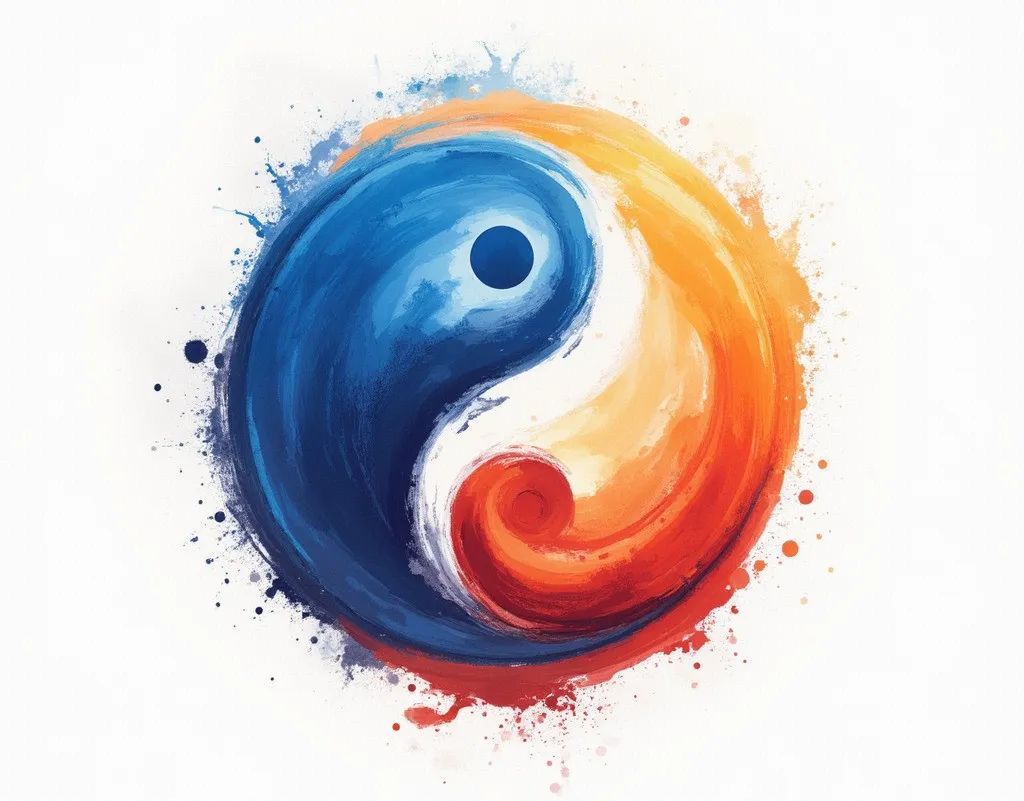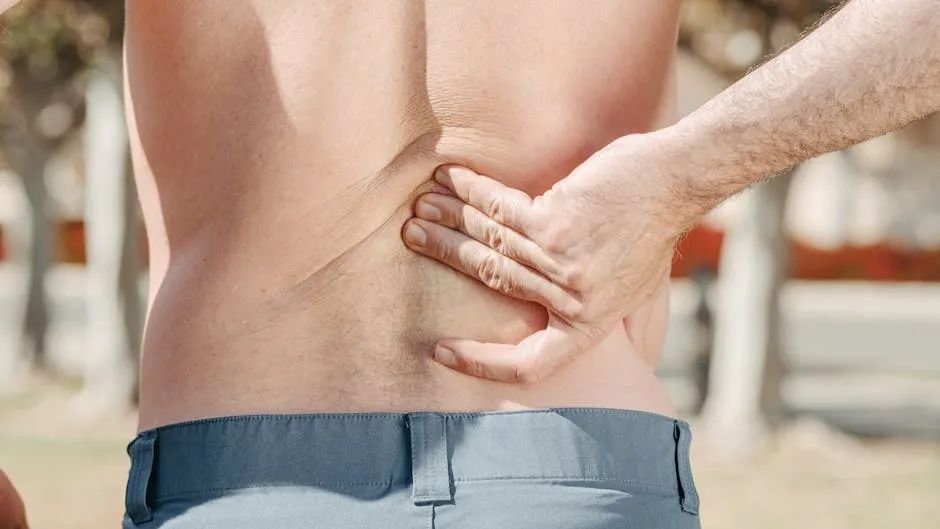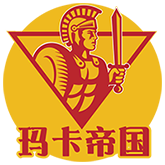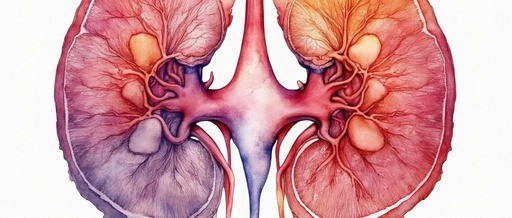
The kidneys, as the foundation of human life, are of utmost importance. Once the kidneys show signs of weakness, it can lead to numerous adverse effects on the body’s normal functioning. In daily life, many people are aware of the significance of kidney tonification. However, it is regrettable that most people’s understanding of kidney tonification remains superficial. Key issues such as how to accurately tonify the kidneys, specific methods for kidney tonification, and related precautions are often only partially understood.
Today, we will delve deeply and comprehensively into strategies for addressing kidney deficiency, helping everyone assess whether they have chosen the correct method for adjustment. Teacher Yu Ren, as a professional, particularly reminds everyone that accurately determining the type of kidney deficiency is key to effective adjustment, and one should not blindly follow trends in treatment.

 Understanding Kidney Deficiency: Differences Between Yin Deficiency and Yang Deficiency
Understanding Kidney Deficiency: Differences Between Yin Deficiency and Yang Deficiency
Kidney deficiency is mainly divided into two types: Kidney Yang Deficiency (Shen Yang Xu) and Kidney Yin Deficiency (Shen Yin Xu), which exhibit distinct symptoms.
Kidney Yang Deficiency refers to insufficient Yang energy in the kidneys, leading to weakened vaporization and transformation functions, akin to insufficient internal “fire power” in the body.
Kidney Yin Deficiency indicates a deficiency of Yin fluids in the kidneys, resulting in a decline in the nourishing and restraining functions of the kidneys.
Teacher Yu Ren emphasizes that determining whether it is Kidney Yang Deficiency or Kidney Yin Deficiency cannot rely solely on a single symptom but requires a comprehensive consideration of the following eight aspects:
1. Overall StateThose with Kidney Yang Deficiency typically exhibit characteristics of cold intolerance, with hands and feet often feeling cold; in contrast, those with Kidney Yin Deficiency tend to be more irritable, fear heat, and have sweaty hands and feet. Teacher Yu Ren points out that this overall state difference is an important reference for distinguishing between Kidney Yang Deficiency and Kidney Yin Deficiency, and everyone should pay attention to their daily feelings.2. Tongue CharacteristicsIndividuals with Kidney Yang Deficiency generally have a plump and tender tongue with a white coating; those with Kidney Yin Deficiency have a thinner, redder tongue with less coating. Observing these tongue characteristics can provide intuitive evidence for determining the type of kidney deficiency.3. Specific ManifestationsKidney Yang Deficiency may lead to decreased libido, functional fatigue, and premature ejaculation; while those with Kidney Yin Deficiency may exhibit impulsiveness, along with premature ejaculation and nocturnal emissions. Teacher Yu Ren suggests that if one notices these specific manifestations, they should pay attention and consult a professional doctor for further diagnosis if necessary.4. Mental StateIndividuals with Kidney Yang Deficiency often feel fatigued and lack energy; those with Kidney Yin Deficiency may experience restlessness due to relatively strong heart fire. The difference in mental state is also a key point in distinguishing between the two types of kidney deficiency.5. Physical CharacteristicsThose with Kidney Yang Deficiency may experience lower limb edema and a pale complexion; while those with Kidney Yin Deficiency are often thinner with a flushed complexion. The external physical appearance and complexion can also assist in determining the type of kidney deficiency.6. Urination StatusIndividuals with Kidney Yang Deficiency typically have clear, long urine and feel weak during urination; while those with Kidney Yin Deficiency have short, dark urine and may feel tightness and discomfort in the lower abdomen. Observing urination status can help accurately determine the type of kidney deficiency.7. Sleep QualityThose with Kidney Yang Deficiency may experience frequent urination at night and possibly nocturnal diarrhea; while those with Kidney Yin Deficiency often suffer from insomnia and vivid dreams, accompanied by symptoms of tidal fever and night sweats. Sleep quality and related accompanying symptoms can provide important clues for determining the type of kidney deficiency.8. Pulse CharacteristicsIndividuals with Kidney Yang Deficiency have a pulse that is large and soft, feeling weak upon heavy pressure; while those with Kidney Yin Deficiency have a pulse that is thin and rapid. However, pulse diagnosis requires professional TCM knowledge and experience, and it is recommended to refer to this in a doctor’s diagnosis.
Additionally, some symptoms may appear in both Kidney Yang Deficiency and Kidney Yin Deficiency:
1. Dizziness and TinnitusThe kidneys are connected to the brain and open to the ears. Kidney deficiency can lead to insufficient nourishment to the brain, resulting in symptoms such as dizziness, forgetfulness, tinnitus, and hearing loss.2. Weakness in the Lower Back and KneesThe kidneys govern the bones and produce marrow; kidney deficiency can prevent the bones and marrow from receiving adequate nourishment, leading to lower back pain and weakness in the knees.3. Shallow BreathingThe lungs govern exhalation, while the kidneys govern inhalation. Kidney deficiency can cause an inability to inhale adequately, resulting in symptoms such as shallow breathing and shortness of breath. Recommendations for Adjusting Kidney Yang Deficiency
Recommendations for Adjusting Kidney Yang Deficiency
(1) TCM Patent Medicine Adjustment
Some TCM patent medicines with warming and tonifying effects on Kidney Yang can be selected, such as You Gui Wan (You Gui Pill), Jin Gui Shen Qi Wan (Golden Cabinet Kidney Qi Pill), and Suo Yang Guo Jing Wan (Suo Yang Solid Essence Pill). Teacher Yu Ren reminds that when using TCM patent medicines for adjustment, it is essential to follow medical advice, understand the usage, dosage, and possible adverse reactions, and not to arbitrarily increase or decrease the dosage.
(2) Dietary Therapy Plan
Using ingredients such as cinnamon (Rou Gui), deer antler (Lu Rong), Eucommia bark (Du Zhong), horny goat weed (Yin Yang Huo), Suo Yang (Suo Yang), cistanche (Rou Cong Rong), and dodder seed (Tu Si Zi) for dietary therapy can assist in warming and tonifying Kidney Yang. Teacher Yu Ren suggests that dietary therapy is a long-term process that requires patience and consistency, while also paying attention to ingredient combinations and cooking methods to better exert their effects.
(3) Food Supplementation Suggestions
Those with Kidney Yang Deficiency are suitable to consume foods such as lamb (Yang Rou), Chinese yam (Shan Yao), leek (Jiu Cai), shrimp (Xia Ren), lychee (Li Zhi), walnut (He Tao), and sea cucumber (Hai Shen), as these foods help to replenish Kidney Yang. During the food supplementation process, it is important to maintain a balanced diet and avoid excessive consumption of any one type of food.
(4) Daily Maintenance
In daily life, it is important to keep warm and avoid consuming cold and cool-natured foods. Get plenty of sunlight, actively participate in physical exercise, and also pay attention to moderation in sexual activity to avoid excessive depletion of Yang energy. Teacher Yu Ren emphasizes that daily maintenance is crucial for improving Kidney Yang Deficiency, and good lifestyle habits can provide strong support for kidney health.


Recommendations for Adjusting Kidney Yin Deficiency
(1) TCM Patent Medicine Adjustment
Medicines such as Zuo Gui Wan (Left Return Pill), Liang Wei Di Huang Wan (Six Flavor Rehmannia Pill), and Zhi Bai Di Huang Wan (Anemarrhena and Rehmannia Pill) have nourishing effects on Kidney Yin and can be selected under the guidance of a doctor. Teacher Yu Ren particularly points out that different TCM patent medicines focus on specific symptoms of Kidney Yin Deficiency, and it is essential to choose the most suitable medicine based on professional judgment.
(2) Dietary Therapy Plan
Using ingredients such as goji berries (Gou Qi Zi), soft-shelled turtle shell (Bie Jia), black root (Xuan Shen), dendrobium (Shi Hu), privet fruit (Nu Zhen Zi), polygonatum (Huang Jing), cowherb seed (Huai Niu Xi), and raw rehmannia (Sheng Di Huang) for dietary therapy can help nourish Kidney Yin. During dietary therapy, it is important to adjust the quantity and frequency of ingredients based on one’s physical condition.
(3) Food Supplementation Suggestions
Those with Kidney Yin Deficiency are suitable to consume foods such as black rice (Hei Mi), black beans (Hei Dou), shiitake mushrooms (Xiang Gu), wood ear mushrooms (Mu Er), black chicken (Hei Ji), black fish (Hei Yu), and black sesame (Hei Zhi Ma), as these foods are beneficial for nourishing Kidney Yin. When selecting food supplementation ingredients, ensure the freshness and quality of the ingredients.
(4) Daily Maintenance
It is important to maintain good indoor ventilation and consume foods that have sweet and moistening properties. Balance work and rest, actively participate in physical exercise, and also pay attention to moderation in sexual activity to avoid excessive depletion of Yin fluids. Teacher Yu Ren reminds that the focus of daily maintenance for Kidney Yin Deficiency is to nourish Yin fluids and create an internal and external environment conducive to the body’s recovery.

Follow to learn more about the latest information on sexual health
The professional public account that strong men are all reading


